APSF Stoelting Conference 2019
September 4, 2019 - September 5, 2019
Event Navigation
2019 APSF Stoelting Conference Summary
“Perioperative Deterioration: Early Recognition, Rapid Intervention, and the End of Failure to Rescue”
Click the names or photos below for more information.
Co-hosts:
September 4-5, 2019
The Camby, Autograph Collection
2401 E Camelback Rd
Phoenix, AZ 85016
This Stoelting Conference will include expert presentations, panel discussions, and small groups. The primary focus of this conference will be achieving consensus about key issues as they relate to the timely detection and appropriate intervention of the deteriorating perioperative patient through closely facilitated working groups. For more information about sponsoring the Stoelting Conference, please contact Sara Moser at: [email protected].
APSF gratefully acknowledges the following supporters
Stoelting Conference Supporters

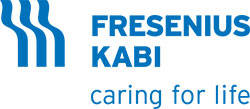
Educational Grant Provider
Stockham-Hill Foundation
Steering Committee:
Objectives:
The Anesthesia Patient Safety Foundation’s (APSF’s) annual Stoelting Conference is designed to foster multidisciplinary discussion around key safety issues in perioperative care. This forum provides an opportunity to network, catalyze collaborative relationships, and leverage the combined expertise of diverse stakeholders in finding solutions to complex vexing problems that harm patients.
1. Convene stakeholders and individuals interested in perioperative safety and “failure to rescue”
APSF Stoelting Conferences bring together leaders from anesthesia, surgical, intensive care and hospitalist practices, perioperative and intensive care nursing, pharmacy, respiratory care, industry, regulatory agencies, and patient safety organizations to develop insights and recommendations on how to improve perioperative patient safety.
2. Improve our understanding of recognition, rescue, and resilience in the deteriorating perioperative patient
A major factor contributing to postoperative mortality and morbidity is failure:
- Failure to recognize when patients begin to develop perioperative problems
- Failure to rapidly intervene once problems are recognized
- Failure to rescue once interventions are started
Over the years, various models for early recognition have been tested and implemented— success has often been context-specific to single healthcare organizations. Recent articles that describe this problem include:
- “Failure of healthcare professionals to recognize the deteriorating patient and the inability of existing data systems to trigger an appropriate response in a timely manner remain pervasive.” APSF Newsletter, October 2018.
- “Little is known about the impact of interpersonal and organizational dynamics, or microsystem factors, on failure to rescue.” Health Affairs, November 2018.
3. Develop ideas and recommendations that will lead to solutions to end “failure to rescue”
Through a hybrid program of presentations, debates, story-telling and human-centered design methodology, the conference will be a platform for more than two dozen innovative, feasible and effective ideas that will further our journey to eliminate “failure to rescue”.
Program
(Program tentative, subject to change.)
TUESDAY, SEPTEMBER 3, 2019
6:00 – 9:00 PM
Pre-conference Reception
WEDNESDAY, SEPTEMBER 4, 2019
6:30 – 7:30 AM
Full Buffet Breakfast and Networking
7:30 – 7:45 AM
Day 1 Opening: Our Moonshot: Eliminating Failure to Rescue
![]()
Della M. Lin, MS, MD, FASA
Co-Program Chair
APSF Board of Directors
Honolulu, HI
Della M. Lin is a Senior Fellow in Patient Safety Leadership with the Estes Park Institute and is an inaugural National Patient Safety Foundation/Health Forums Patient Safety Leadership Fellow (2002). She is faculty with the Jefferson School of Population Health Quality Safety Leadership Series (QSLS), faculty with the Institute for Health Care Improvement (IHI) and holds a Visiting Faculty appointment with the Johns Hopkins Armstrong Institute for Patient Safety and Quality.
Dr. Lin facilitates multi‐stakeholder groups to challenge and better the status quo of patient care systems through shared goals of improving safety culture, effective leadership and building sustainable solutions from the ground level. Her speaking is notable for an engaging balance of science and storytelling. She is currently part of the national AHRQ team implementing Improving Surgical Care and Recovery (ISCR) and leads her state’s Hawaii Safer Care collaborative.
Dr. Lin continues an active practice in anesthesiology in Hawaii, receiving her training from the University of California, San Diego.
Welcome
![]()
Mark A. Warner, MD
APSF President
Professor of Anesthesiology, Department of Anesthesiology and Perioperative Medicine
Mayo Clinic
Rochester, MN
Dr. Mark Warner is a professor in anesthesiology at the Mayo Clinic. In his institution, he has served as chair of the Department of Anesthesiology, the physician leader of its hospitals, executive dean of its College of Medicine and Science, and a member of its Board of Governors.
Dr. Warner has served in the leadership of several national anesthesiology organizations. He has been president of the American Society of Anesthesiologists, the American Board of Anesthesiology, and the Academy of Anesthesiology. He currently is president of the Anesthesia Patient Safety Foundation.
7:45 – 8:15 AM
Introduction to Human‐Centered Design
![]()
Amanda Sammann, MD, MPH
Amanda Sammann, MD, MPH is an Assistant Professor of general surgery at the University of California, San Francisco and the Founder and Executive Director of The Better Lab; a venture that uses design to study and fix health care challenges. Her team will facilitate integrating design-thinking methodology into this year’s Sotelting Conference.
Dr. Sammann is a general surgeon who practices trauma surgery, acute care surgery and surgical critical care at the Zuckerberg San Francisco General Hospital and Trauma Center (ZSFG).
She received her bachelor’s degree from Stanford University, a MPH from Columbia University and her MD and surgical training at UCSF. Dr. Sammann also completed her critical care fellowship at Oregon Health & Sciences University and spent two years as the Medical Fellow and Medical Director at the Silicon Valley design firm, IDEO.
Dr. Sammann has spent a lifetime trying to make things better. She has expertise in Human Centered Design (HCD), building novel content for health websites, developing surgical training curriculum, designing medical products and fixing dozens of health care systems challenges.
8:15 – 8:45 AM
A patient: A clinician
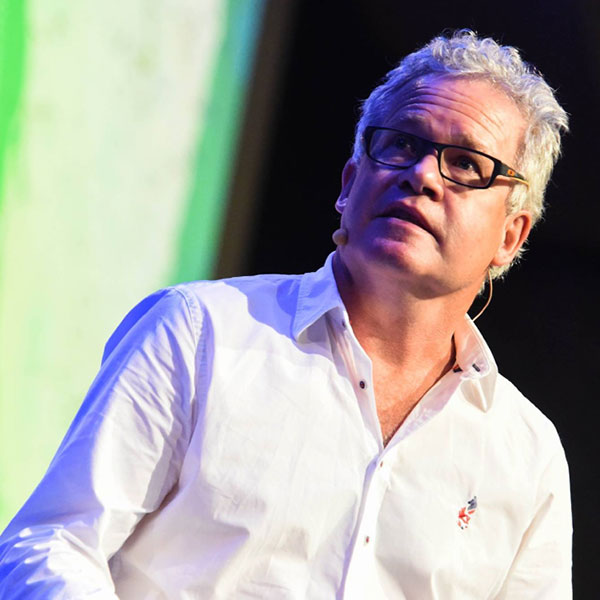
Professor Michael Buist, MbChB (Otago), FRACP, FCICM, MD (Monash), Grad Cert Health Economics
Michael Buist is a retired academic physician and intensive care specialist. He is a graduate of Otago Medical School in New Zealand (MB ChB 1983) and completed specialist training with the Royal Australasian College of Physicians in intensive care medicine (FRACP 1991, FCICM 2010). In 2007 he graduated Doctor of Medicine with the submission of his thesis to Monash University; “The epidemiology and prevention of in hospital cardiac arrests.” He also has a graduate certificate in health economics from Monash University (2001). He is a Clinical Honorary Professor, Faculty of Health, University of Tasmania. He still undertakes private physician clinics in a community general practice in Wynyard, Tasmania.
Publications and Grants
His academic contributions (83 peer review publications) are in the areas of health reform, evidence-based approaches to improving hospital systems and processes, and clinical engagement, on contemporary issues related to patient safety and patient centred care. He has made significant contributions to patient safety that has had a substantial positive impact on hospitals, clinicians and communities nationally and internationally. This is best exemplified by his two publications on Rapid Response Systems in the British Medical Journal (2002 and 2007) and the Lancet (2005). Professor Buist has been a passionate and public advocate for health system quality and reform with a particular focus on patient safety. He has received a number of awards and distinctions in this area. His academic publications have included both research studies and commentary in the leading international journals, such as the British Medical Journal, New England Journal of Medicine, Lancet, and the Medical Journal of Australia. Many of his publications and public output has focussed on how hospital systems can be improved to ensure patient safety.
Commercialization of basic research
Based on the basic research on rapid response team Professor Buist founded and directed a company called Patientrack (www. Patientrack.com) which is an electronic system of tracking and managing real time patient alerts (Australian Patent AU2004/001499): “System and process for facilitating the provision of healthcare.” These systems are now wide spread in the National Health Service in the United Kingdom.
8:45 – 9:25 AM
A Lens into Perioperative Deterioration Anesthesia Closed Claims
![]()
Karen Domino, MD, MPH
Karen B. Domino, MD, MPH is Professor and Vice Chair for Clinical Research in the Department of Anesthesiology and Pain Medicine and Adjunct Professor of Neurologic Surgery at the University of Washington, School of Medicine in Seattle. Dr. Domino completed medical school at the University of Michigan, resident/fellowship training at the University of Pennsylvania, a Master in Public Health in Health Services at the University of Washington, and a health policy fellowship based at the National Academy of Medicine. Dr. Domino is a Commissioner of the Washington State Medical Commission.
For over 15 years, Dr. Domino has been director of the Anesthesia Closed Claims Project and Registries, funded by the quality component of the American Society of Anesthesiologists, the Anesthesia Quality Institute. This project investigates adverse outcomes of patients undergoing perioperative anesthetic care and acute/chronic pain management by analysis of closed files at national malpractice insurance organizations. The project established specialized patients registries to collect additional medical information concerning rare perioperative complications, including pediatric cardiac arrest, postoperative visual loss, postoperative respiratory arrest, and awareness during anesthesia. This project has contributed to improvements in perioperative patient safety. In recognition of her research contributions to the specialty, Dr. Domino was selected as the 10th Annual John W. Severinghaus Lecturer in Translational Science in 2018.
Anesthesia Incident Reporting System (AIRS)
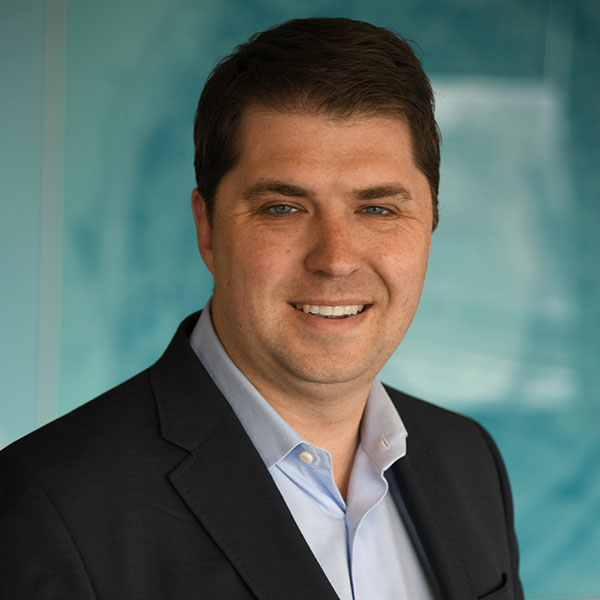
Patrick Guffey, MD
Patrick Guffey is an Associate Professor of Anesthesiology, and practices Pediatric and Obstetric anesthesia. He is Chief Medical Information Officer at Children’s Hospital Colorado, Performance Improvement and Informatics Officer at the Department of Anesthesiology, University of Colorado, and Medical Director of Perioperative Performance Improvement. Patrick is board certified in clinical informatics, the past chair of Epic System’s steering board for anesthesiology, and past President of the Colorado Chapter of the Health Information Management Systems Society. He serves on the board of directors of CORHIO. Patrick’s work with Epic centers on the use of protocols to improve outcomes. He also partners with Epic, GE Healthcare, Codonics, and Omnicell to improve interoperability and decrease medical errors. Patrick serves as the Medical Director of the Anesthesia Quality Institute’s Patient Safety Organization where he developed the first national, specialty specific, reporting system for adverse events. He is also a member of the Children’s Hospital Association’s Patient Safety Team. Patrick serves on committees with the Centers for Medicare and Medicaid (CMS) on determining informatics measures for clinical harm. His research interests center on application of the Electronic Health Record and Clinical Informatics to improve quality, safety and outcomes. Patrick is particularly interested in interoperability and using informatics to drive highly reliable, efficient patient care.
9:25 – 9:45 AM
The Challenge of Metrics and Failure to Rescue
![]()
George T. Blike, MD, MHCDS
Dr. Blike has served as Chief Quality and Value Officer of the Dartmouth-Hitchcock Health system for the last seven years. In this role, Dr. Blike leads enterprise-wide efforts to continually improve the patient quality, safety, experience and value of care. He is an academic professor of anesthesiology who has worked to advance the application of human factors, safety science and systems engineering to improve the safety and reliability of complex healthcare delivery systems. He currently co-leads an AHRQ funded patient safety learning lab, focused on the safety problem of “failure to rescue” (a.k.a., deaths from serious but treatable complications). He currently serves as the Chair of the Board of the Vermont Program for Quality in Healthcare and the immediate past-Chair of the New Hampshire Foundation for Healthy Communities.
9:45 – 10:00 AM
Mid‐Morning Break
10:00 – 11:40 AM
Debates
Who to Monitor and How?
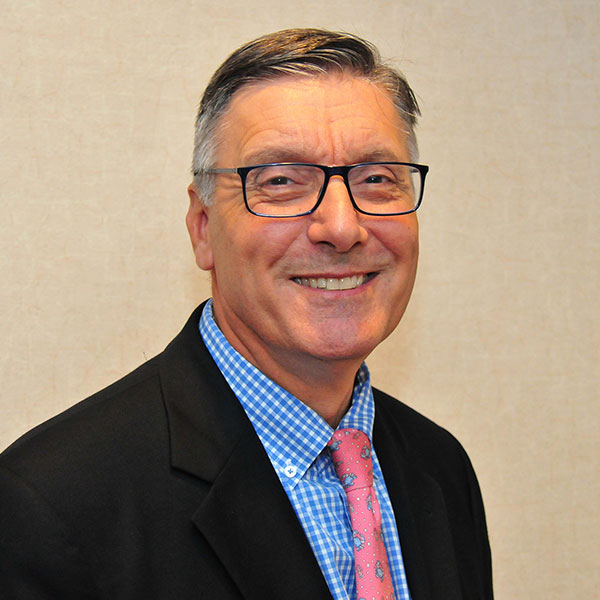
Michael DeVita, MD
In his 23 years at the University of Pittsburgh Dr. DeVita practiced in all of Pitt’s 10 subspecialty ICUs and was medical director of the Surgical ICU. His main focus was on the development of Rapid Response Systems and promoting its spread globally. After authoring the first publication on RRS in the Western Hemisphere, he organized the first three International Conferences on Rapid Response Systems. He led creation of the International Society for Rapid Response Systems, and was that organization’s first president. He led two international consensus conferences and participated in a third, all published in leading critical care journals. He was an early pioneer in simulation education and is a past president of the Society for Simulation in Healthcare. Dr. DeVita was Professor of Critical Care Medicine at Pitt, and now at Columbia University. He has received numerous awards, including The Grenvik Award for Ethics, and the Asmund Laerdal Award for Resuscitation Research. He has authored over 100 peer review journal publications and is editor of the Textbook of Rapid Response Systems, the leading publication in the field, now in two languages.
![]()
Carol Peden, BSc(Med Sci), MB ChB, MD, FRCA, FFICM, FFMLM, MPH
Professor of Anesthesiology at the Keck School of Medicine at the University of Southern California. Her research interests include improving clinical outcomes, patient safety, perioperative medicine and innovation in healthcare. She was named the Harvard School of Public Health Innovator of the Year in 2016 for her work in improving outcomes for high risk surgical patients. She is Vice Chair of the American Society of Anesthesiologists Brain Health Initiative, and was recently elected to the Enhanced Recovery after Surgery US board. Carol is a Fellow of the Institute for Healthcare Improvement (IHI) and has helped design and lead quality and safety improvement projects around the world. Before leaving the U.K. in 2015, she held roles as Associate Medical Director for Quality and Safety at a national level for NHS England, National Clinical Director in the Enhanced Recovery program for Emergency Surgery and a founder and board member of the National Emergency Laparotomy Audit (NELA). She is dually accredited in Anesthesiology and Intensive Care Medicine. She received her medical degree and a research doctorate in Medicine from the University of Edinburgh UK, and has an MPH from Harvard.
![]()
Moderator: Lynn Reede, DNP, MBA, CRNA, FNAP
Augmented Intelligence: Hype or New Normal

Professor Michael Buist, MbChB (Otago), FRACP, FCICM, MD (Monash), Grad Cert Health Economics
Michael Buist is a retired academic physician and intensive care specialist. He is a graduate of Otago Medical School in New Zealand (MB ChB 1983) and completed specialist training with the Royal Australasian College of Physicians in intensive care medicine (FRACP 1991, FCICM 2010). In 2007 he graduated Doctor of Medicine with the submission of his thesis to Monash University; “The epidemiology and prevention of in hospital cardiac arrests.” He also has a graduate certificate in health economics from Monash University (2001). He is a Clinical Honorary Professor, Faculty of Health, University of Tasmania. He still undertakes private physician clinics in a community general practice in Wynyard, Tasmania.
Publications and Grants
His academic contributions (83 peer review publications) are in the areas of health reform, evidence-based approaches to improving hospital systems and processes, and clinical engagement, on contemporary issues related to patient safety and patient centred care. He has made significant contributions to patient safety that has had a substantial positive impact on hospitals, clinicians and communities nationally and internationally. This is best exemplified by his two publications on Rapid Response Systems in the British Medical Journal (2002 and 2007) and the Lancet (2005). Professor Buist has been a passionate and public advocate for health system quality and reform with a particular focus on patient safety. He has received a number of awards and distinctions in this area. His academic publications have included both research studies and commentary in the leading international journals, such as the British Medical Journal, New England Journal of Medicine, Lancet, and the Medical Journal of Australia. Many of his publications and public output has focussed on how hospital systems can be improved to ensure patient safety.
Commercialization of basic research
Based on the basic research on rapid response team Professor Buist founded and directed a company called Patientrack (www. Patientrack.com) which is an electronic system of tracking and managing real time patient alerts (Australian Patent AU2004/001499): “System and process for facilitating the provision of healthcare.” These systems are now wide spread in the National Health Service in the United Kingdom.

Piyush Mathur, MD
Piyush Mathur MD, FCCM is a Staff Anesthesiologist and Critical Care physician at Cleveland Clinic, Ohio with more than 20 years of clinician experience. He has also been serving in the role of the Quality Improvement Officer and chair, compliance committee, Anesthesiology Institute for the past 8 years. He completed his medical school training in India from Armed Forces Medical College (AFMC,Pune) followed by residency in Anesthesiology and fellowship in Critical Care from Cleveland Clinic. He subsequently completed a one year, quality fellowship at Cleveland Clinic and training in computer programming, machine learning and deep learning. He is the past program director of the anesthesiology critical care fellowship program at Cleveland Clinic.
A recognized leader in critical care, quality, education and artificial intelligence applications in healthcare, he has led many of the local and national programs including serving as the chair of postgraduate education committee, coding and documentation education committee of the Society of Critical Care Medicine(SCCM). He has focused his research on applications of artificial intelligence(AI) in healthcare for the last many years. He is the founder and team lead of BrainX, one of the 60 teams in round 2 of IBM Watson Artificial Intelligence Xprize. He has also founded one of the largest online group for machine learning in healthcare, BrainX Community. He is a leader in quality and patient safety who has innovated and successfully implemented many algorithms and tools in electronic health records such as difficult airway identification (EPIC), anesthesia awareness alert (DSS, Talis), antibiotic alert (ACG, Talis).
Recipient of multiple innovation awards at Cleveland Clinic, he is leading innovation efforts in integrating machine learning and artificial intelligence in healthcare. Current, projects include AIDE (Artificial Intelligence Diagnosis Engine), SALUS (robotic artificial intelligence patient safety system), BRAINS (Biologically Relational Artificial Intelligence Networking System). He is a recipient of numerous local and international awards including Institute of Healthcare Improvement (IHI) Permanante award and the prestigious Presidential citation from Society of Critical Care Medicine (SCCM). He has made numerous local, national and international presentations and publications in the fields of anesthesiology, critical care, quality, education and artificial intelligence applications in healthcare.
![]()
Moderator: Meghan Lane-Fall, M.D.
Dueling Arms: Afferent/Efferent
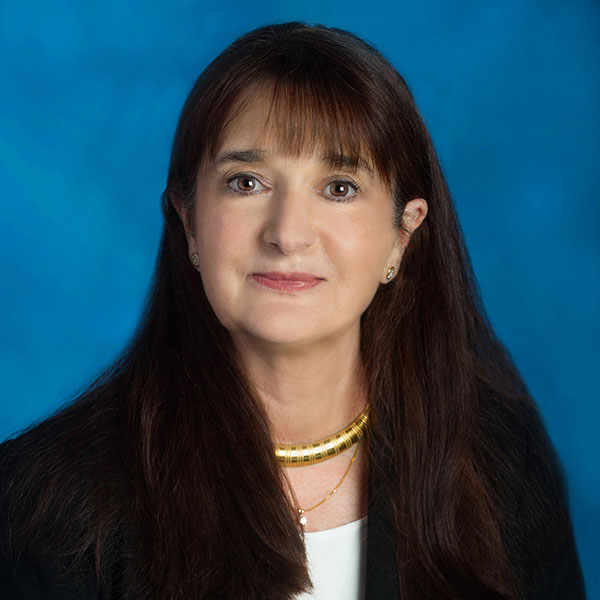
Marilyn Hravnak, RN, PhD, ACNP‐BC, FAAN, FCCM
Marilyn Hravnak is a tenured professor at the University of Pittsburgh School of Nursing, in the Acute and Tertiary Care Department. She is also the Director of our PhD Program, and is certified as an Adult Acute Care Nurse Practitioner by the American Nurses Credentialing Center (ACNP-BC), and as an Adult Acute/Critical Care Clinical Nurse Specialist (CCNS).
She has an active program of NIH funded research in cardiovascular acute and critical care. One research foci is in examining myocardial dysfunction after subarachnoid hemorrhage from the standpoints of causes, consequences and potential interventions. In another research focus, she is examining prediction models for cardiorespiratory instability in continuously monitored hospitalized patients in order to assist nurses in identifying unstable patients earlier or, ideally, applying preemptive interventions, and as well decrease alarm fatigue. She is committed to eliminating alarm fatigue and failure-to-rescue. She also has a long history in critical care nursing, including having served as the Clinical Nurse Manager in the Cardiothoracic ICU at Presbyterian-University Hospital, and as an Acute Care Nurse Practitioner. She is an active member of the Society of Critical Care Medicine, including serving as the current chair of the TeleICU Committee, and on the Advisory Board for the SCCM Discovery Research Network.
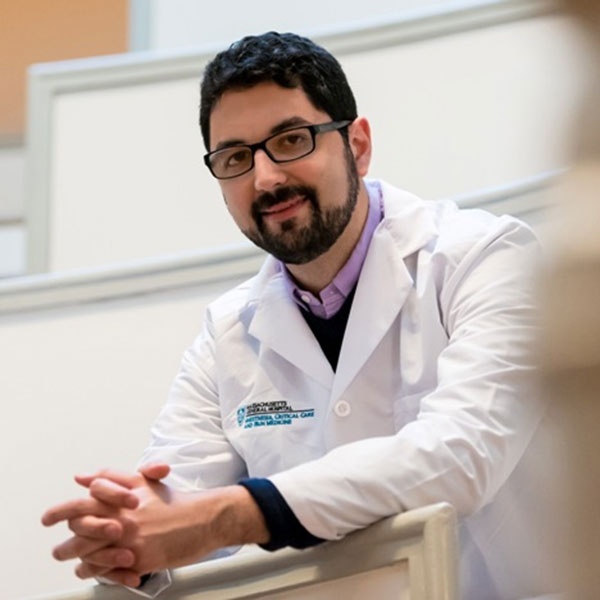 Kyan Safavi, MD, MBA
Kyan Safavi, MD, MBA
Instructor, Harvard Medical School
David F Torchiana Fellow in Healthcare Policy and Management
Kyan is a faculty member of the Department of Anesthesia, Critical Care and Pain Medicine at Massachusetts General Hospital and the David F Torchiana Fellow in Healthcare Policy and Management at the Mass General Physicians Organization. He completed anesthesia residency and critical care fellowship at MGH. He previously received his undergraduate, MD, and MBA degrees from Yale University. Kyan works within the Healthcare Systems Engineering group at MGH. Along with colleagues at MGH and MIT, he has led projects examining ICU transfer delays, emergency department overcrowding, and inpatient surgical discharge processes. One of his projects uses machine learning to predict surgical discharges and has won grant awards from Partners Healthcare and Amazon Web Services. In the DACCPM, Kyan has led the development, implementation, and study of a remote monitoring program to reduce failure-to-rescue events at the Massachusetts Eye and Ear for post-operative patients with over 3,000 patients monitored to date. This work won the Partners Healthcare Richard Nesson Award for Innovation. Currently the work is being scaled across MGH with new projects in sepsis, severe hypoxemia, and ECMO. Previously, he has served as the DACCPM representative to the MGH Housestaff Quality and Safety Committee and was the Chief Quality Fellow for the surgical ICU. Kyan is also the co-Founder of Position Health, a digital health company that seeks to reduce hospital readmissions. Kyan has presented his work internationally and published in top academic journals including Circulation, JAMA-Internal Medicine, and Health Affairs.
Moderator: Paul Preston, M.D.
11:40 AM – 12:10 PM
Challenges and Themes from the Field: Results from the Stoelting Conference Steering Committee
Della M. Lin, M.S., M.D., FASA
12:10 – 12:30 PM
Clinically Futile Cycles
Michael Buist, MD
12:30 – 1:40 PM
Lunch
1:40 – 2:00 PM
Case Study: Kaiser AAM Program
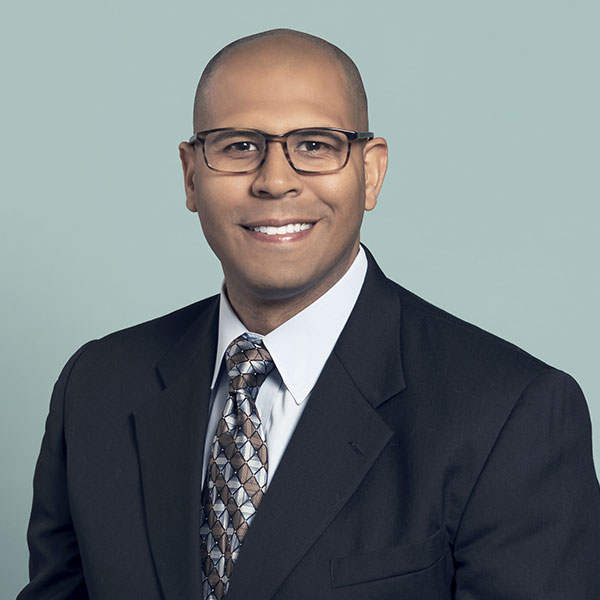
Brian Alex Dummett, MD, CPPS
Associate Program Director | Kaiser Permanente Mid-Atlantic States Internal Medicine Residency Program
Patient Safety Officer at Holy Cross Hospital
Dr. Dummett is an Associate Program Director in Internal Medicine at Kaiser Permanente Mid-Atlantic States. He is a practicing hospitalist at Holy Cross Hospital in Silver Spring, Maryland. Until recently, he was a Nocturnist for seven years at Kaiser Permanente South San Francisco California Hospital.
After graduating from George Washington University School of Medicine, he completed his residency and chief resident year at Kaiser Permanente Santa Clara, California. He was also a Founding Advisor for the healthcare data analytics company Health Fidelity. He subsequently completed a one-year fellowship in Patient Safety and Quality Improvement in the Kaiser Permanente, Northern California Region. Soon after completing the fellowship, he became the Associate Program Director, teaching and mentoring subsequent fellows on a wide variety of projects.
He is a Diplomat of the American Board of Internal Medicine and holds a subspecialty board certification in Clinical Informatics from the American Board of Preventative Medicine. He is also a Certified Patient Safety Specialist. He completed the Institute of Healthcare Improvement Patient Safety Executive Training program, he was a certified EPIC Physician Builder and is a TeamSTEPPS master trainer. He earned three certificates in Fundamentals of Critical Care Support most recently in 2018.
In addition to educating the next generation of physicians and treating patients, he develops and implements risk stratification tools and performance improvement processes throughout Kaiser Permanente. For the past five years, he led an interdisciplinary team to implement Advance Alert Monitor across 21 hospitals in Northern California. He is now serving as the KP National Subject Matter Expert in the spread of AAM to the other regions.
2:00 – 5:00 PM
Human-Centered Design Workshop
2:00 – 2:10 PM
Move to Breakout Challenge
2:10 – 2:50 PM
Breakout Challenge Group Work – Discuss findings; share own insights
Facilitated by Amanda Sammann, MD, MPh and the Better Lab
2:40 – 3:10 PM
Breakout Challenge Group Work – Brainstorm solutions to challenge
Facilitated by Amanda Sammann, MD, MPh and the Better Lab
3:10 – 3:30 PM
Mid-Afternoon Break
3:30 – 4:30 PM
Breakout Challenge Group Work – Prototyping
Facilitated by Amanda Sammann, MD, MPh and the Better Lab
4:45 – 5:00 PM
Day 1 Wrap-up
6:00 – 9:00 PM
Mid‐Conference Reception
THURSDAY, SEPTEMBER 5, 2019
6:30 – 7:30 AM
Full Buffet Breakfast and Networking
7:30 – 7:35 AM
Day 2 Opening: How might we?
7:35 – 8:05 AM
A patient’s family story
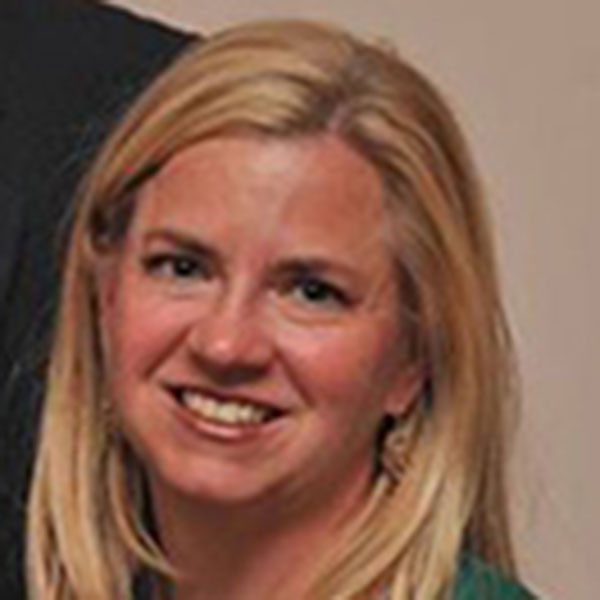
Laura Batz Townsend
Laura Batz Townsend is President and Co-Founder of the Louise H. Batz Patient Safety Foundation https://www.louisebatz.org/. The foundation was created in honor of her mother who died from opioid-induced respiratory depression following routine knee surgery in 2009.
The mission of the Batz Foundation is to prevent medical errors by ensuring that patients and families have the knowledge they need to make informed decisions, to have a safe hospital experience, and to support innovative advancements in patient safety. Their greatest hope is that patients, families, and caregivers will work together, as a team, to improve patient safety in our hospitals.
Laura grew up in the medical community of San Antonio, with five physicians in her family. Laura entered the sports marketing and sports grant management field, where she has worked for 13 years. That family medical background combined with Laura’s organizational and development skills equipped her family to create the Louise H. Batz Patient Safety Foundation. Their collaborative work includes successfully developing city-wide PCA safety initiatives to all hospitals in San Antonio, with the goal to reduce preventable medication errors due to PCA therapy.
The Batz Foundation continues to work tirelessly towards their goal to open pathways of communication between patients, doctors, nurses, and hospitals in an effort to improve the patient’s experience, enhance the culture of safety and prevent adverse events.
Mrs. Townsend currently sits on the Board of Consumers Advancing Patient Safety (CAPS), is the Chair for the Patient-Family Advisory Steering Committee for Seton Healthcare Family in Austin, and sits on the Planetree Designation Committee, and The Steering Committee for the Patient Safety Movement Foundation.
8:05 – 8:15 AM
Review and Reflections of Day 1
Mark A. Warner, M.D.
Della M. Lin, M.S., M.D., FASA
8:15 – 8:30 AM
Breakout Challenge Group Work – Pitch Practice
Facilitated by Amanda Sammann, MD, MPh and the Better Lab
8:30 – 9:45 AM
Breakout Challenge Group Work – Gallery Walk of Prototypes for Feedback
Facilitated by Amanda Sammann, MD, MPh and the Better Lab
9:45 – 10:15 AM
Breakout Challenge Group Work – Compete to present to larger group
Facilitated by Amanda Sammann, MD, MPh and the Better Lab
10:15 – 11:00 AM
Prototype presentations and “award” selection
11:00 – 11:30 AM
First Steps/Next Steps: Voting Results and Commitments




